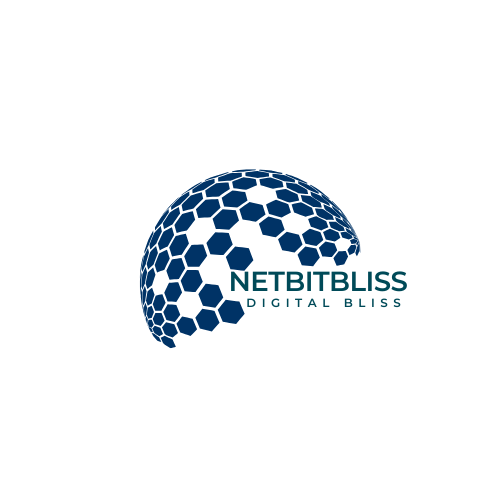AI and Machine Learning Integration in Marketing Campaigns: The Future of Digital Marketing

In today’s fast-evolving digital landscape, businesses are seeking smarter, faster and more personalized ways to connect with their target audience. Artificial Intelligence (AI) and Machine Learning (ML) are no longer just buzzwords—they are transforming how marketing campaigns are designed, executed and optimized. At NetBitBliss, we believe that integrating AI and ML into marketing strategies is the key to driving measurable growth, customer satisfaction, and long-term success.
In this article, we’ll explore how AI and machine learning are revolutionizing marketing campaigns, their benefits, real-world applications and future trends every business should be ready for.
What is AI and Machine Learning in Marketing?
Artificial Intelligence (AI) in marketing refers to the use of intelligent technologies that can analyze vast amounts of data, identify patterns and make predictions to improve decision-making.
Machine Learning (ML), a subset of AI, involves algorithms that “learn” from data and improve over time without being explicitly programmed.
When integrated into marketing, AI and ML help businesses better understand customer behavior, predict future actions and deliver personalized campaigns at scale.
Why AI and Machine Learning Matter in Marketing Campaigns
The traditional approach to marketing campaigns—mass advertising with limited personalization—is becoming obsolete. Today’s consumers expect tailored experiences, real-time engagement and value-driven interactions. AI and ML make this possible by:
Personalization at Scale – Delivering content, product recommendations, and offers that align with individual customer preferences.
Data-Driven Decisions – Analyzing massive datasets quickly to uncover insights humans might miss.
Real-Time Optimization – Continuously improving campaigns based on live performance data.
Enhanced ROI – Reducing wasted ad spend by targeting the right audience with the right message at the right time.
Key Benefits of AI and Machine Learning Integration in Marketing
Smarter Customer Segmentation
AI-powered tools can cluster customers into highly specific segments based on behavior, demographics, and intent. Instead of broad targeting, marketers can reach niche groups with tailored messaging.Predictive Analytics for Campaign Success
ML algorithms predict customer actions—such as purchase likelihood or churn risk—helping businesses design proactive campaigns. For example, predictive analytics can tell you when a lead is ready to convert, saving time and resources.Hyper-Personalized Experiences
Personalized emails, product recommendations, and chatbot interactions increase engagement and loyalty. Amazon and Netflix are prime examples of AI-powered personalization done right.Automation of Repetitive Tasks
From automated ad bidding to AI-driven content generation, businesses can save time and focus on strategy while AI handles execution.Improved Customer Journey Mapping
By tracking user interactions across multiple touchpoints, AI provides a clear picture of the customer journey, allowing marketers to optimize each stage for better conversions.
Practical Applications of AI and ML in Marketing Campaigns
Smarter Customer Segmentation
AI-powered tools can cluster customers into highly specific segments based on behavior, demographics, and intent. Instead of broad targeting, marketers can reach niche groups with tailored messaging.Predictive Analytics for Campaign Success
ML algorithms predict customer actions—such as purchase likelihood or churn risk—helping businesses design proactive campaigns. For example, predictive analytics can tell you when a lead is ready to convert, saving time and resources.Hyper-Personalized Experiences
Personalized emails, product recommendations, and chatbot interactions increase engagement and loyalty. Amazon and Netflix are prime examples of AI-powered personalization done right.Automation of Repetitive Tasks
From automated ad bidding to AI-driven content generation, businesses can save time and focus on strategy while AI handles execution.Improved Customer Journey Mapping
By tracking user interactions across multiple touchpoints, AI provides a clear picture of the customer journey, allowing marketers to optimize each stage for better conversions.
Practical Applications of AI and ML in Marketing Campaigns
AI-Powered Chatbots and Virtual Assistants
Provide 24/7 customer support.
Answer FAQs instantly.
Collect valuable customer data to improve future campaigns.
Programmatic Advertising
AI automates ad buying and placement, ensuring your ads reach the right audience at the best time.
Machine learning optimizes campaigns in real time, lowering costs and boosting ROI.
Content Creation and Curation
AI tools can generate blog posts, social media captions, and ad copy tailored to your audience.
ML recommends trending topics to keep your brand relevant.
Email Marketing Optimization
AI analyzes open rates, click-throughs, and subscriber behavior.
ML ensures every customer receives the right content at the right time, increasing engagement.
Voice Search and Visual Recognition
AI-powered marketing campaigns are optimized for voice queries via Alexa, Siri, or Google Assistant.
Visual search tools like Google Lens allow customers to find products by simply uploading images.
Case Studies: AI in Action
Coca-Cola: Uses AI to analyze customer preferences and create personalized beverage campaigns across different regions.
Spotify: Employs ML algorithms to recommend playlists based on listening habits, boosting engagement.
Starbucks: Leverages predictive analytics to suggest orders based on past purchases and seasonal trends.
These examples show how industry leaders are successfully integrating AI to elevate customer engagement and drive revenue.
Challenges in AI and ML Integration
While the opportunities are endless, businesses must also consider the challenges:
Data Privacy Concerns – Customers are increasingly aware of data usage. Transparency and compliance with GDPR or CCPA are crucial.
Implementation Costs – Advanced AI tools may require significant investment. However, long-term ROI often outweighs the initial expense.
Need for Skilled Professionals – Successful AI integration requires expertise in data science, machine learning, and digital marketing.
At NetBitBliss, we help brands overcome these challenges with customized solutions, ensuring smooth and effective AI adoption.
Future Trends of AI and Machine Learning in Marketing
AI-Driven Video Marketing – Personalized video ads tailored to individual users.
Augmented Reality (AR) and AI – Interactive campaigns that blend real-world experiences with AI-powered customization.
Emotion AI – Understanding customer emotions through voice and facial recognition to craft empathetic campaigns.
AI-Powered Influencer Marketing – Identifying the right influencers based on AI-analyzed engagement metrics.
Conclusion
The integration of AI and machine learning in marketing campaigns is not just a trend—it’s a necessity for businesses that want to stay relevant, competitive, and profitable in the digital age. From personalized experiences to predictive analytics, AI empowers marketers to deliver smarter, faster, and more effective campaigns.
As technology continues to evolve, the brands that adopt AI early will be the ones leading tomorrow’s market. At NetBitBliss, we’re committed to helping businesses unlock the full potential of AI in digital marketing.


3 Responses
Your blog is a testament to your dedication to your craft. Your commitment to excellence is evident in every aspect of your writing. Thank you for being such a positive influence in the online community.
Your writing is not only informative but also incredibly inspiring. You have a knack for sparking curiosity and encouraging critical thinking. Thank you for being such a positive influence!
Your point of view caught my eye and was very interesting. Thanks. I have a question for you.